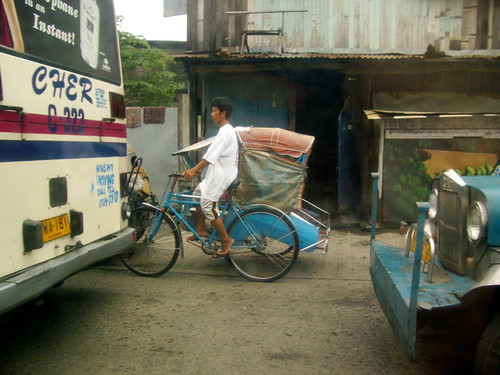NYMEX benchmark light sweet crude for January delivery broke through $100 per barrel for the first time ever today.
That is all.
NYMEX benchmark light sweet crude for January delivery broke through $100 per barrel for the first time ever today.
That is all.
Dr.Thomas Palley is a Yale educated published economist. I’m just a guy who blogs about bikes. He’s evidently a smart guy, but I think Palley misses the point in his essay in Foreign Policy in which he reassures investors that the U.S. dollar will remain the reserve currency of choice around the world. In spite of a growing chorus of doubt around the world on the value of the dollar, Palley tells us that the falling dollar is merely a correction rather than a symptom of something fundamental about the world economy. Here’s what he writes:
I think every nation that depends heavily on imported oil has significant economic challenges, and these challenges are coming sooner rather than later. The mother of all paradigm shifts will soon be on us, but with increased awareness of our reliance on a scarce resource I’m hopeful we can rise to the challenge to soften the landing.
I’ve told a few friends that I expect double digit inflation on food prices for 2008, but according to the Economist, we’re already there this year. The Economist’s food price index rose by a third over the last year and is at its highest level since they began the index in 1845.
Increased affluence around the world means more people eat meat, but the Economist notes also that the sudden push for ethanol means about a third of the corn crop is devoted to ethanol production. More acreage devoted to ethanol production also means less acreage for wheat, soy, and other crops. Corn is also the primary feed for cattle and chickens, so increased feed costs means we pay more for steak and chicken.
The Economist in seems to predict the exploitation of remote wilderness areas as investors pay to plow them under and build roads to access these new agricultural frontiers. We’re already seeing this in Malaysia, Thailand and Indonesia, where millions of acres of rain forest have been replaced with palm oil plantations.
Some predict that rural economies in the developing world will benefit from increased demand for biofuel crops from the west. The reality, though, seems to be different: food crops that used to sold locally are now no longer available, as farmers find it more lucrative to export their crops to the western world than to feed the local population.
This stuff is impossible to predict accurately — we know farmers are abandoning set asides, for example, and planting record acreage to cash in on the ag bonanza. If there’s a boom crop, perhaps there will be enough left over to sell to Mexican tortilla factories and the occasional food aid shipment.
It used to be that I was a little discouraged at my own attempts at conservation — I realized that imy own cutbacks only enabled somebody else to burn that much more. Now that we’re entering an era of real shortages, however, perhaps my savings will allow somebody who’s truly in need to use that resource, and I’m a little more hopeful that my example will encourage others to sacrifice a little bit of their comfortable lifestyles to enable the poor to live.

Okay, enough of beating on that horse: A couple of fun links from A Boy on a Bicycle:
Photo: “Manila Three Wheeler” by Jeff Youngstrom.
Robert Hurst, author of the popular Art of Cycling book, added a footnote in his second edition about a troubling societal dilemma looming in the near future: the growing inability of of global energy supply to meet global energy supply. In his latest blog entry, Robert takes a look at the current situation, taking input from industry analysts and reviewing what the mass media is now saying about the specter of Peak Oil.
If you haven’t yet heard of Peak Oil, Robert’s essay is a good introduction. You can read it here on his blog. He also points to a couple of my daily reads: The Oil Drum and oil engineer Robert Rapier’s R Squared Blog.
San Mateo is on the San Francisco Peninsula, just north of where I work. The AP published a photo of the price at the pump at a Shell station, along with a suggested solution to the problem. (Hint: It has two wheels and no gasoline motor). Via Jym.
Other random stuff:
I’ve been laid up in bed for the past two days with a horrible head cold. I hope the rest of you all have a great weekend!
Update: The video story here is on the amazingly popular Velib bike rental program in Paris, France. One puzzling thing is reporter Keith Miller’s statement that the only big American city with no interest in the project is San Francisco. In fact, San Francisco is considering a bike share program modeled after the Velib program in Paris.
Word is that NBC Nightly News will report tonight (Friday, October 26) that bicycling will be a major mode of transportation in the near future. Tape at, well, whatever time they show the Nightly News. The NBC is already reporting record high crude oil futures that were reached today. They note that OPEC is “set to boost production by 500,000 barrels a day beginning Nov. 1,” but some oil industry experts are skeptical if OPEC can meet that production level.
Props to James for the heads up.